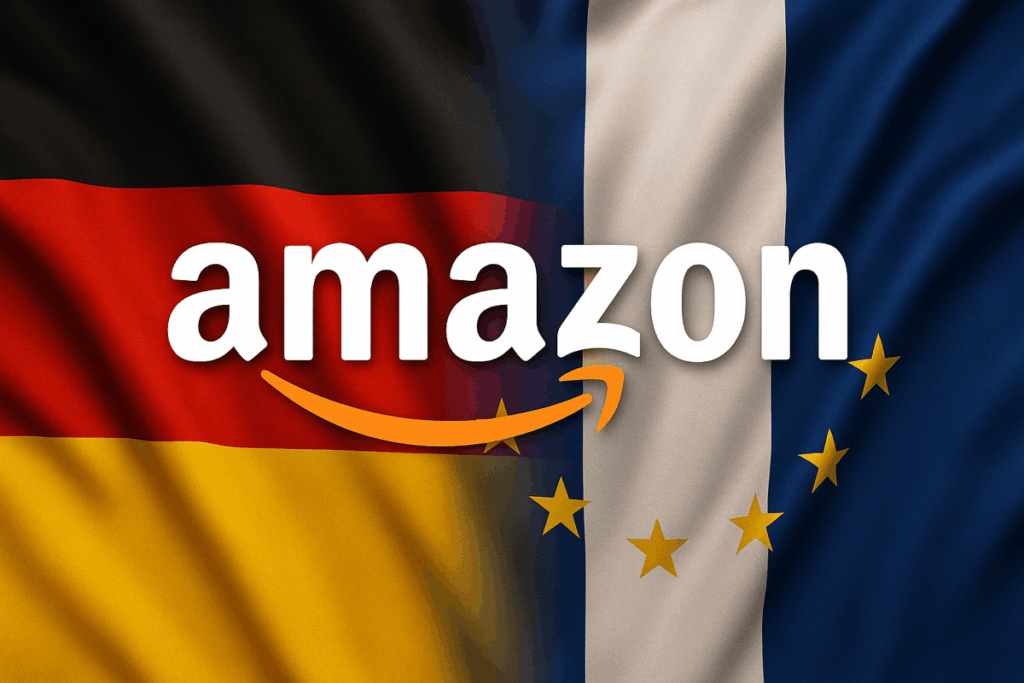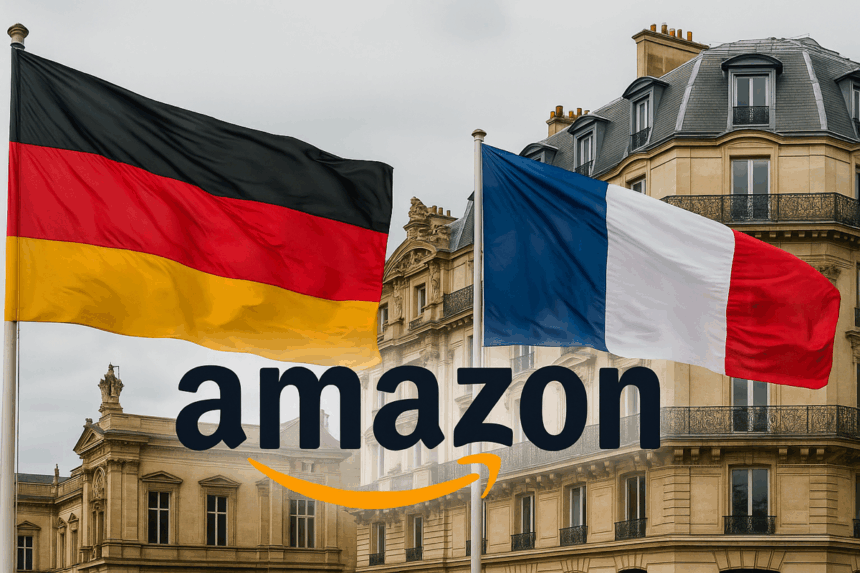Europe’s Digital Rulebook Needs a Shake-Up
Germany and France want a lighter, cleaner set of digital rules for the EU. At the same time, the primary court ruling ruled against Amazon — and the outcome adds fresh pressure to the continent’s regulatory debates.
The two stories are connected. More rules establish tech behaviour. Less clarity slows innovation. Europe is at a moment when its laws determine how AI, e-commerce, and digital platforms operate through this decade and the next.
What’s Happening & Why This Matters
Germany and France Push for a Simplified EU Digital Framework
Germany and France are calling for a streamlined bearing in digital policy. Both governments say the EU’s rulebook sprawls across too many laws. Their ministers want one coherent framework that removes friction and reduces confusion. They also suggest the European Commission review the AI Act sooner than planned.

France’s digital minister, Jean-Noël Barrot, says the current approach stacks laws without checking how they combine: “Europe needs rules that help innovation breathe.” German officials echo the sentiment. They say companies need clarity before they can meet obligations.
The request reached Brussels. The Commission is preparing its five-year review of digital regulations, as new arm-twisting from two of the EU’s biggest economies falls at the perfect time.
Amazon Loses a Key Appeal in EU Court
While France and Germany call for simpler rules, Amazon received a gut punch from the other side of Europe’s regulatory power.
An EU court upheld the Commission’s decision that Amazon must follow special obligations under the Digital Services Act (DSA). The ruling labels Amazon a “Very Large Online Platform.” This status places heavy responsibility on the company. It requires more transparency, more auditing, and stronger protection against illegal goods and harmful content.
Amazon argued it should not receive this classification because it is primarily a retailer, not a social platform. The European General Court disagreed. The judges ruled that Amazon’s systems — and its power to influence commerce — fit the criteria.
The decision is made. The company is now under some of the strictest digital obligations in the world.
How These Threads Tie Together
Europe sends two messages at once. France and Germany want simplification. Courts demand stricter enforcement. And Amazon is squarely in the middle.
For startups, this creates a difficult puzzle: innovation needs predictability. For giants, it sets tougher expectations. For the EU, it sparks debate about how to maintain fairness without slowing down progress.
TF Summary: What’s Next
Europe enters an important stage. The Commission reviews the digital rulebook. Germany and France want harmony. Courts want enforcement. And Big Tech prepares for a terrain that’s tighter before it loosens.
MY FORECAST: Europe trims and reorganises its rules, but enforcement continues to grow. Amazon adapts with new compliance systems while smaller firms push for more clarity. The next two years alter how AI, e-commerce, and digital platforms operate across the continent.
— Text-to-Speech (TTS) provided by gspeech


